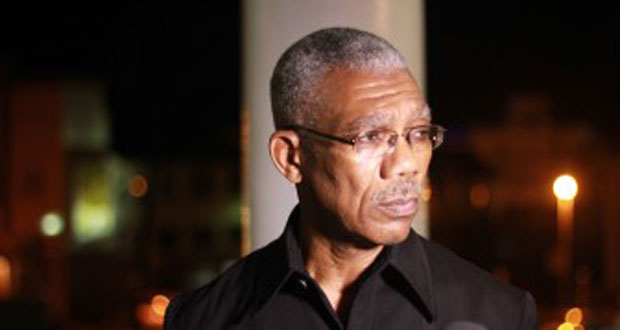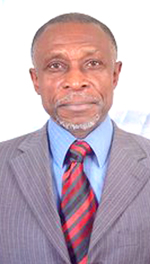GUYANA WANTS BILATERAL, NOT BORDER TALKS WITH VENEZUELA
– Foreign Minister corrects media errors on Guyana/Venezuela controversy VICE-President and Foreign Affairs Minister Carl Greenidge has come out to correct a number of wrongs bandied around the local and regional media regarding the Guyana/Venezuela border controversy.
The first such was that President David Granger had “changed his mind about meeting with and holding discussions pertaining to the border controversy with Venezuelan President NicolÁs Maduro.”
In a statement released by the Foreign Ministry yesterday, Minister Greenidge was quoted saying “this is not the case.
”
The statement sought to challenge headlines by two named media houses which stated the President had a “change of mind.” However, there were no mentions in the body of those articles about the President making such definitive statements.
“His Excellence merely said that he is willing to speak to President Maduro on a variety of issues of common interest, separate and apart from the border issue,” the statement continued.
“President Granger rightly observed that there is much else of importance to be discussed, including trade and stability in the region. That position is a longstanding one and is captured in diplomatic and other correspondence between the two countries.”
Both Presidents Granger and Maduro have approached the United Nations Secretary General Ban Ki Moon requesting he fulfill his role mentioned in the Geneva Agreement.
While the Secretary General has indicated he is looking into the matter, he inquired if both Presidents will be attending the upcoming UN General Assembly in September, which would be an opportune time for addressing the issue between the two neighbouring countries. “Guyana has accepted that approach.”
On the concern of misconceptions regarding the mediation between the two countries, the release stated “several other entities have also offered to mediate in the matter.”
While acknowledging the interest taken by other entities, the statement said “it is only a negotiation problem if one assumes that no international law governs the issue.”
The Foreign Ministry has given all assurance that “Guyana will work with the United Nations and the United Nations Secretary General as set out in Article V (2) of the Geneva Agreement.”
The statement sought to clear the air that Guyana has “never attacked Venezuelan civilians or seized vessels operating in Venezuelan waters or territory.” Similarly, the Foreign Ministry maintains that no maps have been published which are not in keeping with international treaties and laws.
This, according to the Foreign Ministry, is in contrast to the position taken by the Venezuelan President “who has been campaigning across the world with a message that Guyana has been committing acts of aggression against The Bolivarian Republic.”
The Ministry is concerned that these statements by Venezuela have been regarded as fact. “Neither in English nor Spanish is a speech defined as more aggressive…than the actual use of a corvette or a gunboat,” the statement continued.
“The recent Decree issued by Venezuela has not been issued out of the blue; it is part of a well-rehearsed Venezuelan cycle of combined illegal and diplomatic actions.”
While the Geneva agreement allows for both parties to address the controversy brought about by Venezuela’s rejection to the 1899 Arbitral Award, it does not alter the land boundaries between the two countries, mention the maritime borders, nor does it grant Venezuela the power to send vessels or quasi-military groups into the sovereign space of Guyana.
It was only in 1962 and then again in 1966 that Venezuela objected to the awarded settlement. This controversy, according to the release, can only be settled “if Venezuela either makes a legally acceptable challenge on the nullity of the Arbitral Award or drops it.”
If Venezuela makes a successful case, the country would not be awarded the Essequibo region, but instead Guyana would reclaim the land that was given to Venezuela after the 1899 Arbitral Award.


